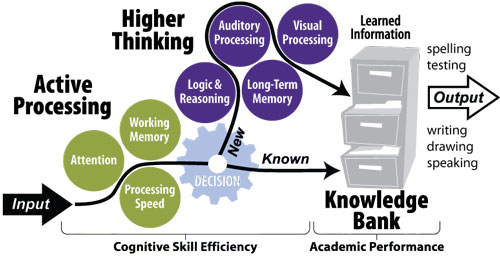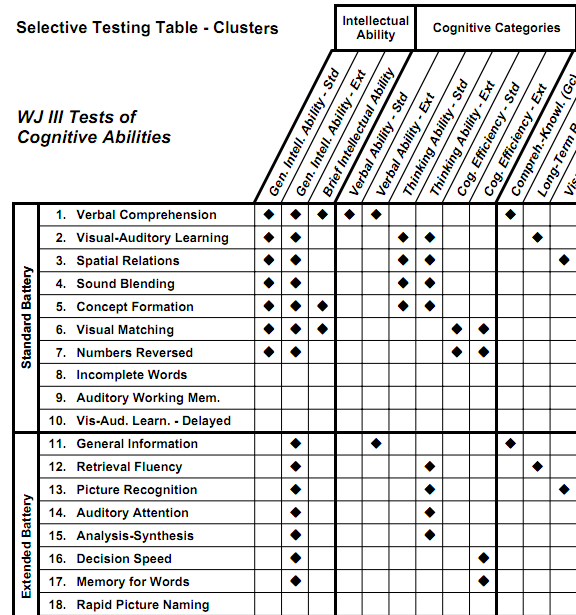Simple Rules Immediately Boost Math Brain
 Learning or relearning the basics of arithmetic – or how to add, subtract, multiply and divide numbers – is painful for most. With calculators everywhere some ask why even learn arithmetic?
Learning or relearning the basics of arithmetic – or how to add, subtract, multiply and divide numbers – is painful for most. With calculators everywhere some ask why even learn arithmetic?
Arithmetic is a core skill in a broader competency called numeracy or how we think quantitatively or with numbers. Quantitative literacy is important for success in a wide variety of careers and household projects, even if you use a calculator! Turns out that learning arithmetic (when done right) is excellent brain training and a foundation for quantitative literacy.
One key – see patterns in numbers using simple rules.
For example, can you complete 98 x 97 = ? in five seconds without a calculator? How about without paper and pencil?
This YouTube video will teach you how to do the problem and similar ones in just a few minutes. A snapshot is given below.
This is just one example of how a simple rule will immediately boost you math skills and build your brain. Of course you need to practice to get it to stick. There are many such rules and even some math programs for sale that teach them. The video above comes from Glad2Teach that also offers a similar approach to algebra. Another program that combines simple rules with memory building and fun is Brainetics.
Even if you already know arithmetic, such programs offer 10-15 minute daily exercises for training your math brain and building quantitative competency.
Very interested to hear from readers with experience using programs that teach simple rules for doing complex arithmetic problems by looking for patterns in numbers.
Categories: Child, Cognitive Development, Memory and Learning, Mental Focus, Training Tags:
Work With Friends to Build a Stronger Brain and a Better World
 Want to grow your Next Brain? Try GardenMind an intriguing new approach that combines cognitive training, social gaming with optional donations to the World Wildlife Fund (WWF).
Want to grow your Next Brain? Try GardenMind an intriguing new approach that combines cognitive training, social gaming with optional donations to the World Wildlife Fund (WWF).
Your mind is a garden and this metaphor is used to guide how you experience brain training. For example, you play memory games to grow deciduous trees and play language games to grow flowers. You can visit a friend’s garden to provide assistance or offer a friendly challenge. Best of all, contributing to WWF initiatives means animals visit and live in your garden.
Very interested to hear from readers that play GardenMind or are aware of similar brain training platforms.
Categories: Cognitive Development, Software, Training Tags: brain training, games
Get Some Mental Toughness on April 25th
 Mental toughness is the idea that we can train our brains to be in a higher state of readiness and more resilient to stress and challenges from the environment. The idea grew out of sports psychology where high performing athletes exert tremendous mental control and focus on demand and under great pressure. It is being applied in the US military and is the subject of dozens of books aimed at improving success in ordinary life.
Mental toughness is the idea that we can train our brains to be in a higher state of readiness and more resilient to stress and challenges from the environment. The idea grew out of sports psychology where high performing athletes exert tremendous mental control and focus on demand and under great pressure. It is being applied in the US military and is the subject of dozens of books aimed at improving success in ordinary life.
We have covered some of the techniques of mental toughness here in the Next Brain Blog. For those interested in learning more I recommend checking out the Mental Toughness Summit. This is a free on-line event that runs from April 25-29th. Some of the best names in the business are involved and it is sure to be loaded with specific ideas from improving brain function and cognitive performance. The host, Renita Kalhorn, will interview 12 leaders in the field. Attendees get to listen in as well as review recording of the interviews over a 24-hour period. There is also the option to upgrade to a premium service where you pay for an MP3 of the interviews.
I am going to attend as much as possible and will blog what I learn. I hope some readers are able to attend too and will share their insights.
Categories: Cognitive Development, Mental Focus, Training Tags:
Art Forms as Cognitive Enhancers?
 There is growing scientific evidence that experiencing art both passively and actively can improve brain function and cognitive performance. Art is used as a form of cognitive therapy with older adults and art training is advocated for children by some experts:
There is growing scientific evidence that experiencing art both passively and actively can improve brain function and cognitive performance. Art is used as a form of cognitive therapy with older adults and art training is advocated for children by some experts:
Michael Posner argues that when children find an art form that sustains their interest, the subsequent strengthening of their brains’ attention networks can improve cognition more broadly.
Experiencing art means experiencing beauty which is powerful emotive and intellectual stuff. There are many anecdotal claims that it enhances mental energy, creativity, improves focus and relieves stress.
Some readers of the Next Brain Blog (including myself) have reported success with a very simple art-based technique.
- Find an a new art form that deeply resonates with you. Mine turned out to be the work of Juri Morioka (see sample above).
- Acquire legal, affordable and high quality copies.
- Consciously experience it on a daily or frequent basis.
It is important to find a new art form, not one you have always liked. Also you may need to change the specific pieces you experience periodically to maintain the intensity of the cognitive effects.
Interested to hear from readers that use this or other art-based techniques to enhance brain function and cognitive performance.
Image source: Paintings by Juri Morioka
Categories: Child, Cognitive Decline, Cognitive Development, Lifestyle, Mental Focus, Older Adult, Perception Tags: art
LearningRx – A Brain Training Center Near You
A reader shared an experience they had with LearningRx a consumer center for brain training. They promise to improve your academic performance by providing coached training on a full range of cognitive skills (see diagram).
The process starts with a formal assessment using the Woodcock-Johnson assessment for cognitive abilities (partially shown below).
You are then matched with a coach and work 3-5 days per week for an hour a day for 3 months. They claim a 3.6 year improvement on the cognitive assessment and have some studies to back it up.
LearningRx has centers across the US and they want to open more using a franchise approach. Interested to hear from other readers that have used this service.
Categories: Child, Cognitive Development, College Student, Memory and Learning, Mental Focus, Perception, Training Tags: brain training
Mom’s Brain Bulks Up After Giving Birth
 Exciting new research suggests that a mother’s brain undergoes significant growth (actually gets larger) in several areas just after birth. Additional brain volume in turn leads to improved cognitive performance. Specifically, hormonal changes seem to trigger improvements in maternal motivation, emotional processing, sensory integration and reasoning and judgment.
Exciting new research suggests that a mother’s brain undergoes significant growth (actually gets larger) in several areas just after birth. Additional brain volume in turn leads to improved cognitive performance. Specifically, hormonal changes seem to trigger improvements in maternal motivation, emotional processing, sensory integration and reasoning and judgment.
The research is reported in the journal Behavioral Neuroscience and summarized nicely in Science Daily.
“In particular, the mothers who most enthusiastically rated their babies as special, beautiful, ideal, perfect and so on were significantly more likely to develop bigger mid-brains than the less awestruck mothers in key areas linked to maternal motivation, rewards and the regulation of emotions.”
Although motherhood is not a strategy for improving brain function and cognitive performance it does seem to have that effect. Especially for those that truly cherish what they have. This is a fry cry from some commonly held beliefs that motherhood can “turn your brain into mush”. It may seem that way with the all additional responsibilities, learning that must be done and the new things to remember but that is how growth normally feels.
Just as the aging mind ripens in many ways with time, taking on the responsibilities of motherhood appears to push the brain to a whole new level of performance.
Categories: Cognitive Development, Lifestyle, Manage Emotions, Parent Tags:
Right Words Boost Infants’ Mental Development
 One question new parents ask is what natural things can I do to stimulate the development of my baby’s brain and make them smarter? There are number of very simple things that have good scientific evidence behind them. For example, new research from Northwestern University confirms that talking to your baby accelerates their cognitive development. Using the right words improves their ability to categorize objects.
One question new parents ask is what natural things can I do to stimulate the development of my baby’s brain and make them smarter? There are number of very simple things that have good scientific evidence behind them. For example, new research from Northwestern University confirms that talking to your baby accelerates their cognitive development. Using the right words improves their ability to categorize objects.
It has long been held that talking to your baby is good for mental development but the Northwestern research found that this is so for the very young, only 2-4 months. The researchers write:
“We suspect that human speech, and perhaps especially infant-directed speech, engenders in young infants a kind of attention to the surrounding objects that promotes categorization,” said Waxman, a co-author and professor of psychology. “We proposed that over time, this general attentional effect would become more refined, as infants begin to cull individual words from fluent speech, to distinguish among individual words and kinds of words, and to map those words to meaning.”
Hearing object-correlated words influences infants’ cognition even in the first few months of life! The key is to clearly use “real words” or ones that properly pick out objects.
It is not clear what the longer term brain-boosting advantages of this are but the ability to categorize is fundamental to how we think.
To get started you may want to check out the talking pointers from the Center for Early Literacy. If you use this technique, or others to boost your baby’s brain development, please share your experience with other readers by leaving a comment.
Categories: Child, Cognitive Development, Lifestyle, Parent Tags:



